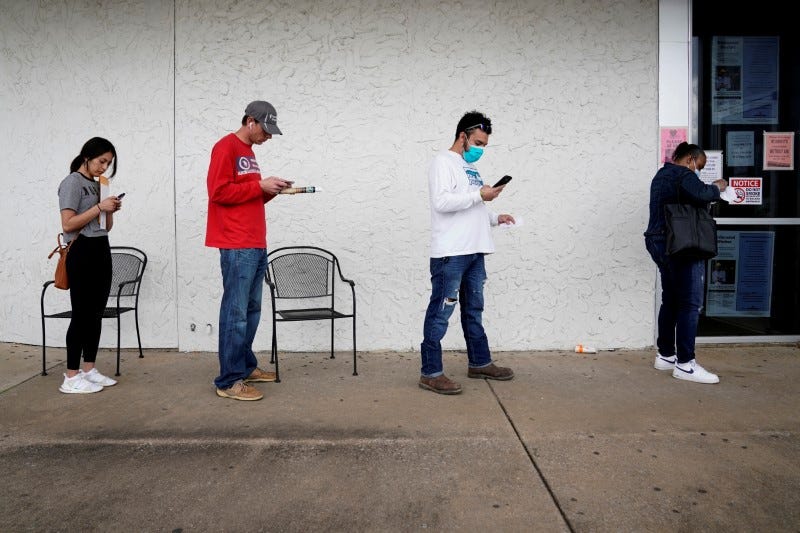- Congress approved a $600 unemployment bonus on top of state payments as part of its coronavirus relief efforts in March.
- Those weekly payments are set to expire on July 31, and there’s no consensus from lawmakers about extending them.
- The president and GOP leaders oppose the extension, while the Treasury secretary is mulling another round of stimulus payments.
- Visit Business Insider’s homepage for more stories.
The extra $600 Congress afforded in March to Americans who were laid off as a result of the coronavirus pandemic is set to expire at the end of July, even as many businesses around the country remain unable to open.
The weekly payments are in addition to state benefits, which vary based on location and previous wages, averaging a combined $978 per week nationwide. For many workers, the checks have totaled more than their previous income. But with unemployment still at record levels, that could soon change if lawmakers don’t act before August.
With the virus still spreading, and new cases increasing in some states that have begun to allow businesses to reopen, it’s unlikely most of the 21 million unemployed Americans (as of June 6) will be back to work before the money runs out.
The unemployment rate will hover around double digits for the rest of the year, according to the nonpartisan Congressional Budget Office. It also projected unemployment would average 10% in 2021.
What happens next
Congressional Democrats want to extend the $600 supplement. Lawmakers have included the provision in several proposals, including its HEROES Act, but they're likely to be dead on arrival to the senate. Republican Senate Majority Leader Mitch McConnell called it "a crazy policy" in a call with House Republicans late last month, and President Donald Trump has also said he would veto such a measure, The Washington Post reported.
Other options mulled by the Democratic side include connecting the size of unemployment payments to the nation's economic health through automatic stabilizers. In a scenario Rep. Don Beyer proposed, weekly benefit checks would gradually scale back from $600 to $300 as the country's economy recovers.
Some Republicans have supported the idea of paying people to return to work. Sen. Rob Portman of Ohio unveiled a plan last month to pay $450 a week for workers heading back to their old jobs or new ones.
Larry Kudlow, the director of the National Economic Council for the Trump administration, said of the idea of a return to work bonus: "It's something we are looking at very carefully."
Luckily, while the three options have so far proven unsuccessful, Treasury Secretary Steven Mnuchin has said he's open to the idea of another round of stimulus payments.
"I think we're going to seriously look at whether we want to do more direct money to stimulate the economy," Mnuchin said while testifying before the Senate Committee on Small Business and Entrepreneurship. He didn't offer specifics on amounts.
